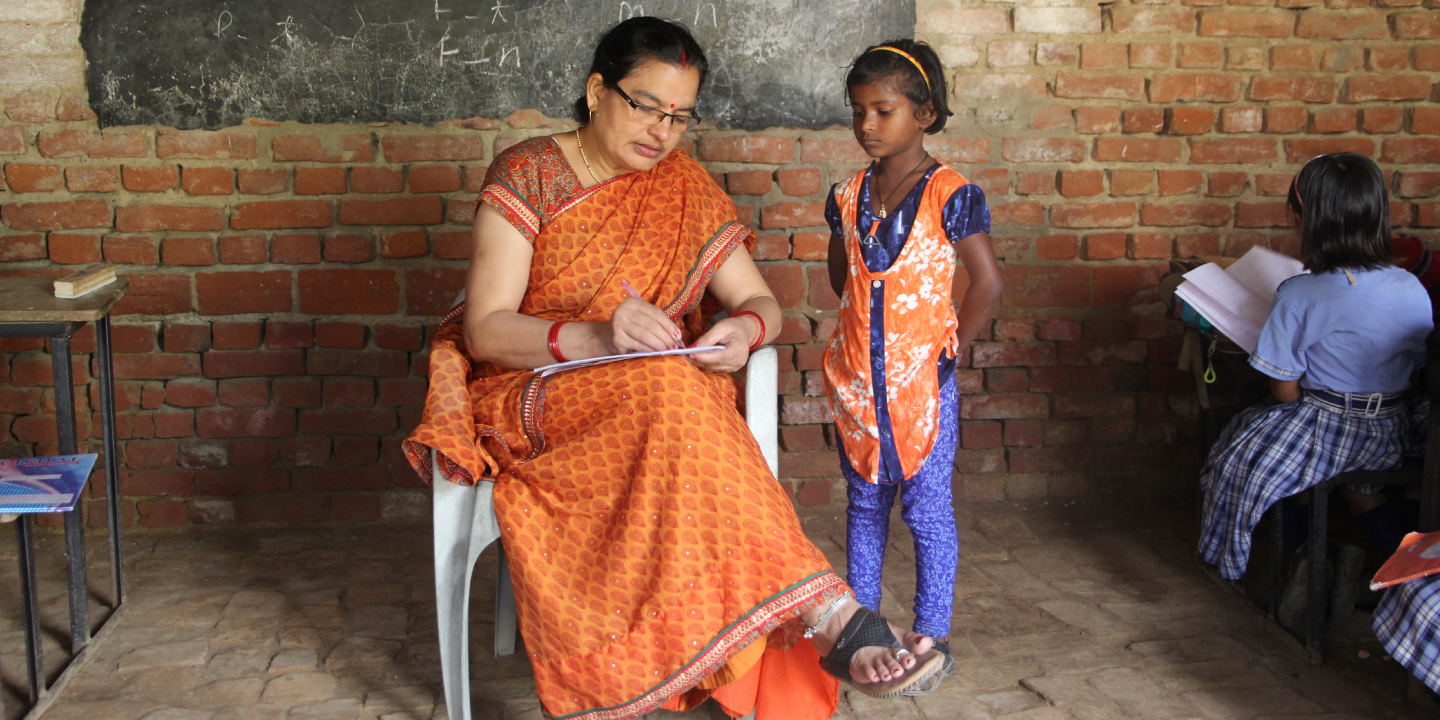
ACER India partners with the DLF Foundation
ACER news 2 Nov 2022 6 minute readACER India is supporting improvements in the learning of beneficiary students of the DLF CARES Scholarship Support programme. Dr Garima Bansal discusses the professional development intervention, a critical component of ACER’s assistance, that aims to strengthen teaching practices to address student learning gaps.
Teachers play a critical role in determining the success of school improvement initiatives and students' educational outcomes. Understandably, it is imperative to empower teachers as they are foot soldiers engaged in the real-time implementation of educational reform.
For ages, the cascade approach, commonly called ‘training-the-trainers’, has dominated teacher professional development. Lately, this approach has been criticised for several reasons.
The pitfalls include an unsatisfactory transfer of learning to the bottom tier of teachers due to low-quality implementation of the skills accumulated by master trainers; high attrition of master trainers from the system; and high latency of implementation of professional development skills in the classrooms.
Cascading is a top-down approach where teachers lack voice and agency. Educational interventions based on this approach are usually fund-driven rather than needs-driven. Training workshops are often provided in a scattered way, thus, lacking continuity and coherence.
Also, the cascade approach promotes what experts call the Matthew Effect. This is because in most cases, master trainers receive the highest quality of professional development from national or international experts while the bottom tiers receive a distorted version of training from their master trainers.
Teachers may attend a one-day workshop and return to school the following day not sure about ways of integrating the newly acquired knowledge into their curricula, or they may lack the support from colleagues for their attempts to be successful. To be able to implement new learning and technology, teachers need hands-on learning rooted in their own curricula that will enable them to translate training into practice.
At ACER, we provide sustained continuous professional development support to teachers by establishing school-based professional learning communities (PLC). This enables professionals such as teachers, supervisory heads, and the principal to work collaboratively to reflect on their practice, examine the evidence of the relationship between practice and student outcomes, and make changes to improve teaching and learning.
In India, we have collaborated with the DLF Foundation to measure the learning achievements of beneficiary students in the DLF CARES Scholarship Support programme and support improvements in their learning. We aim to make each school a ‘powerhouse’ of teacher professional development where teachers can emerge as ‘classroom researchers’.
This model of teacher professional development uses student data of 1200 test-takers, collected through the International Benchmark Tests (IBT) assessment in English, mathematics, science, and reasoning to identify student strengths and gaps in learning. Gaps identified by the tests help us to craft professional development interventions to support improved teacher competencies in areas where student performance needs immediate attention.
Teachers need consistent support in integrating learning from professional development sessions into their classroom teaching-learning practices. Therefore, we will guide teachers through follow-up sessions where teachers reflect on their practices; discuss challenges they have encountered during the implementation of the practices in their classrooms; and suggest ways of negotiating with their peers in the presence of professional development experts.
We will stimulate teachers’ exploration and development of ideas rather than attempt to ‘feed’ information into their minds. We will create a space for reflective educational practices which enables teachers to improve their methods, and in turn support students effectively.
Teacher empowerment through continuous and sustained professional learning support in a non-threatening environment will enable teachers to use resources optimally in the school system, and support learners to reach their full potential.
Research has shown that providing teachers with structured opportunities to interact with colleagues in a collaborative and supportive environment where they have a voice in guiding the direction of their training is the foundation of school-based PLCs. It will help to ensure that the skills taught during professional development sessions are successfully applied in diverse classroom contexts.
Our professional development intervention in the DLF group of schools is teacher centred. Some of the activities to foster learnings within school-based PLCs may entail:
- lesson study
- reflective meets
- study groups
- classroom observations
- action research
- experience sharing.
We envision that this structured approach will support teachers to become leaders who can interpret the gaps between achieved and intended outcomes; set robust teaching and assessment plans for their students; and implement relevant strategies to support their students’ progress in their learning and achieve improved assessment outcomes.
Eventually, the impact of change in teacher professional development practices will be tracked by administering IBT later in the year to understand if students have improved in the challenging areas in different subjects identified in the previous round of IBT.
